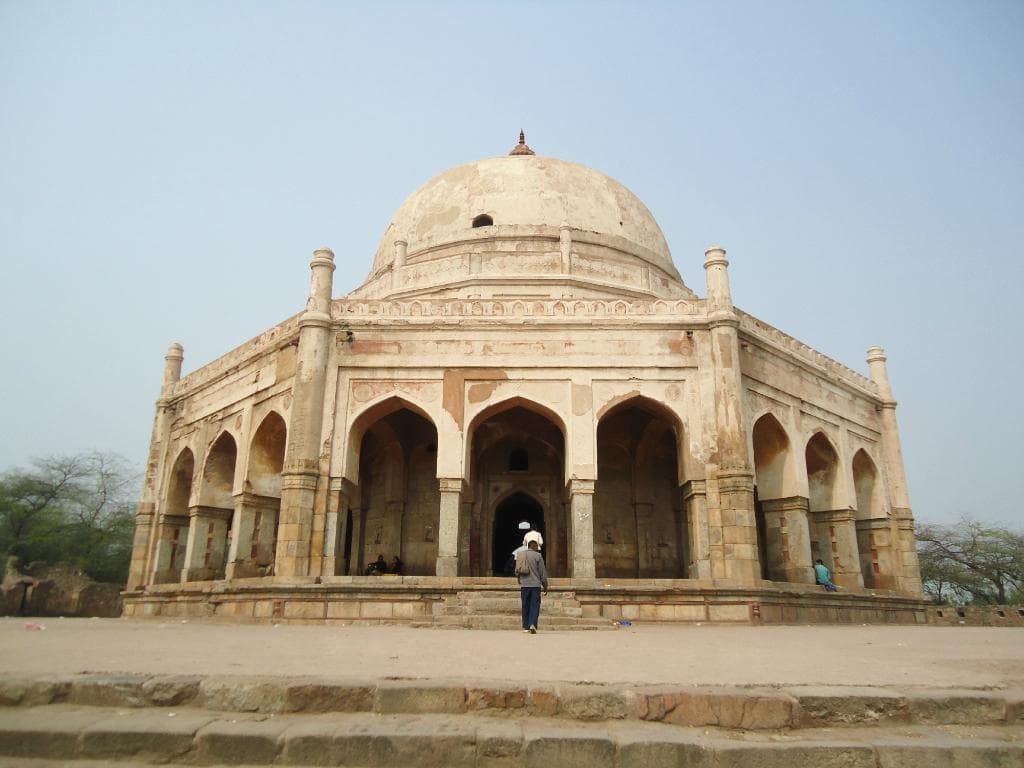
Tomb of Asif Khan
A stunning 17th-century Mughal mausoleum in Lahore, showcasing unique octagonal architecture and intricate tile work, despite historical neglect.
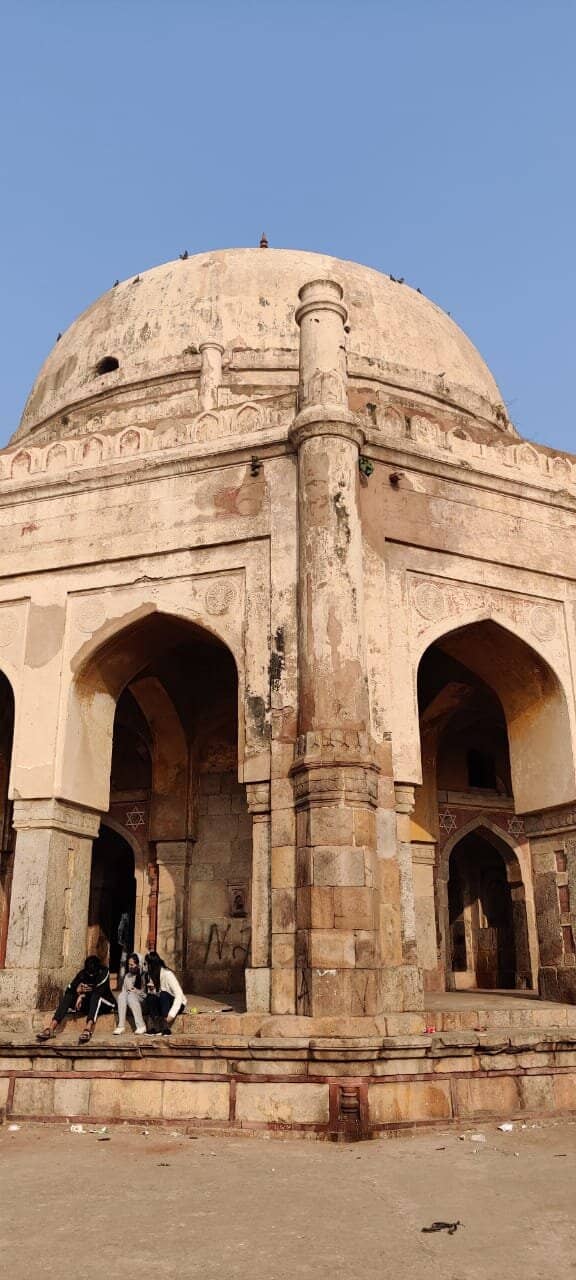
Highlights
Must-see attractions

Social
From TikTok & Reddit
Best Time
Cooler weather, ideal for exploring

Tomb of Asif Khan
Best Time
Cooler weather, ideal for exploring

Highlights
Must-see attractions
A stunning 17th-century Mughal mausoleum in Lahore, showcasing unique octagonal architecture and intricate tile work, despite historical neglect.
"A masterpiece of Mughal design, offering a glimpse into history despite its wear."
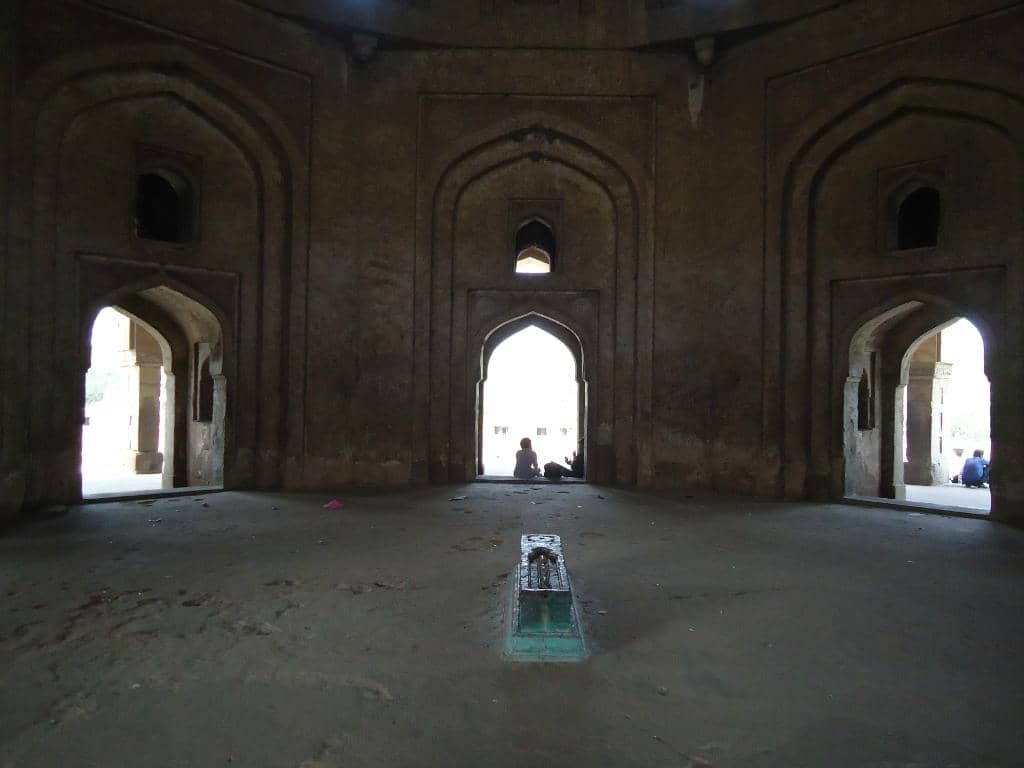
📸 Capture the Details
Visit early for best light and fewer crowds. Don't miss the intricate tile work and marble inlay!
🚶♂️ Explore the Complex
This site is part of a larger historical ensemble, including Jahangir's Tomb and Akbari Sarai.
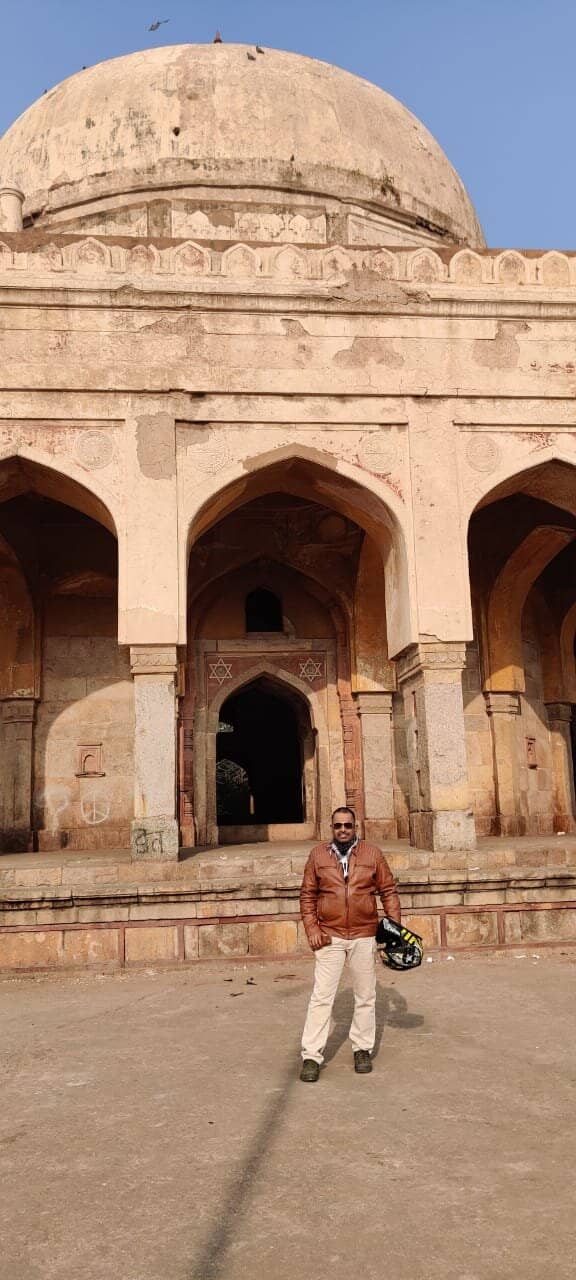
Highlights
Discover the most iconic attractions and experiences
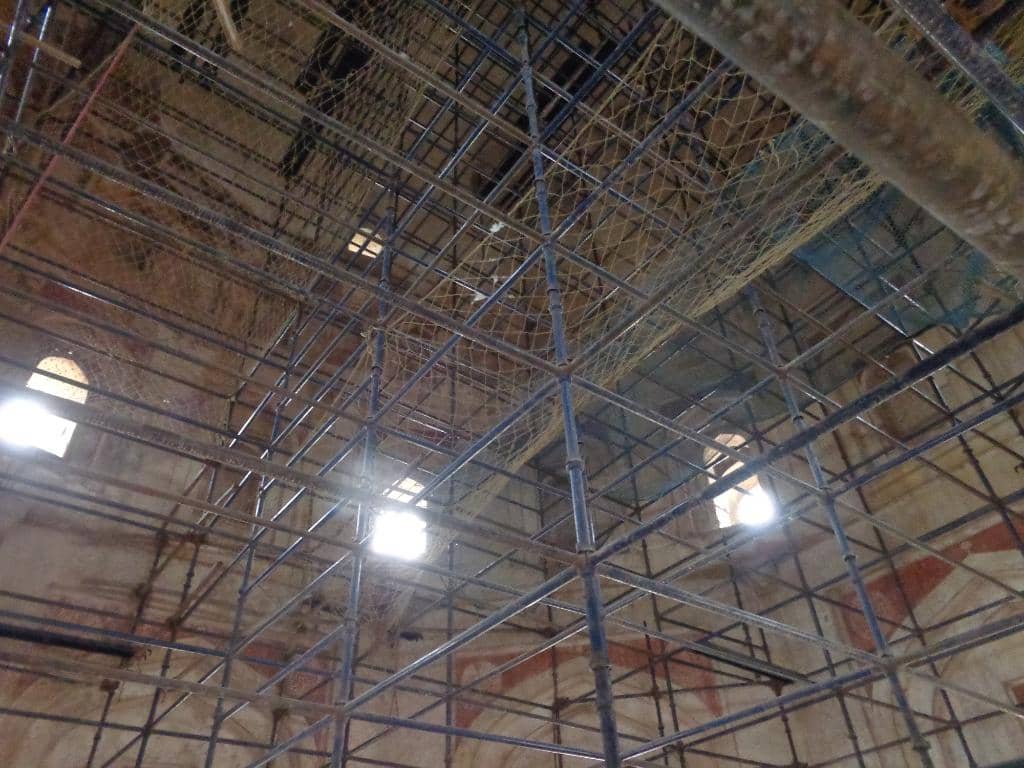
Octagonal Architecture
Main Mausoleum
Admire the unique octagonal layout, a hallmark of noble burials, adorned with red sandstone and marble.
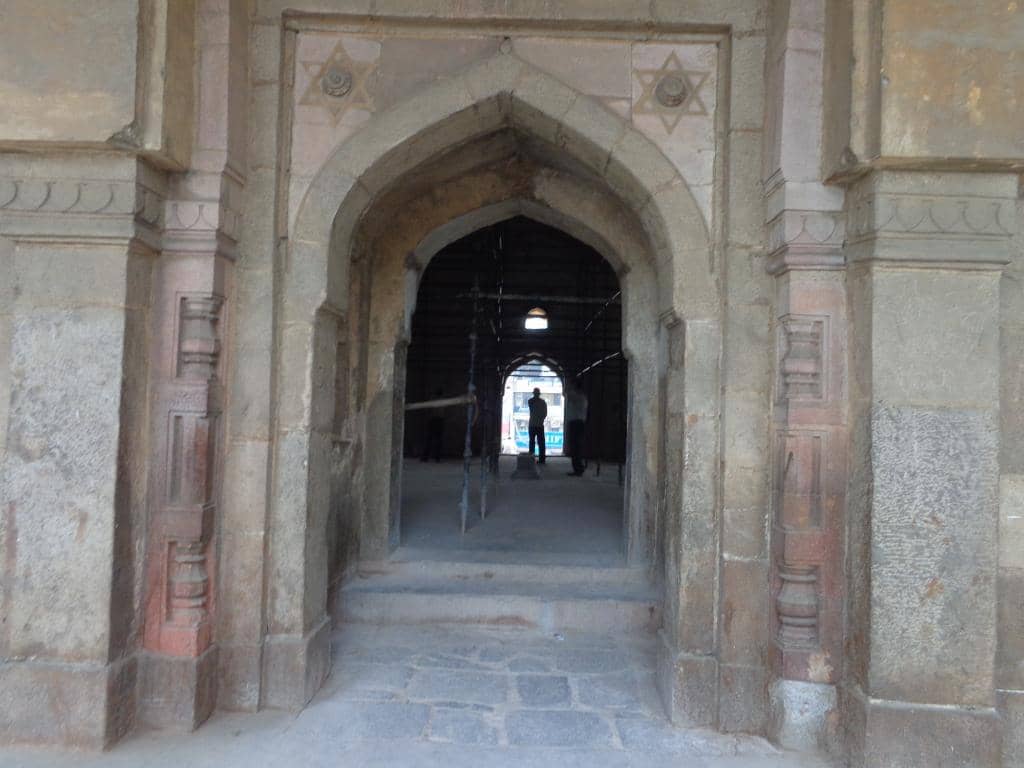
Intricate Tile Work
Exterior and Interior
Marvel at surviving blue kashi tiles and exquisite marble inlay work, showcasing Mughal craftsmanship.

Serene Gardens
Surrounding Quadrangle
Enjoy the peaceful ambiance of the landscaped gardens, offering a tranquil escape amidst historical grandeur.
Plans like a pro.
Thinks like you
Planning Your Visit
Timing is Everything
Respectful Attire & Guides
Best Times
Insider Tips
from TikTok, Instagram & Reddit
📸 Capture the Details
Visit early for best light and fewer crowds. Don't miss the intricate tile work and marble inlay!
🚶♂️ Explore the Complex
This site is part of a larger historical ensemble, including Jahangir's Tomb and Akbari Sarai.
🗣️ Hire a Local Guide
Enhance your visit with historical context and stories from knowledgeable local guides.
👟 Comfortable Footwear
You'll be doing a lot of walking around the expansive grounds, so wear comfortable shoes.
Tips
from all over the internet
📸 Capture the Details
Visit early for best light and fewer crowds. Don't miss the intricate tile work and marble inlay!
🚶♂️ Explore the Complex
This site is part of a larger historical ensemble, including Jahangir's Tomb and Akbari Sarai.
🗣️ Hire a Local Guide
Enhance your visit with historical context and stories from knowledgeable local guides.
👟 Comfortable Footwear
You'll be doing a lot of walking around the expansive grounds, so wear comfortable shoes.
💧 Stay Hydrated
Especially during warmer months, carry water as you explore the site.
What Travellers Say
Reviews Summary
Visitors praise the Tomb of Asif Khan for its unique Mughal architecture, intricate tile work, and peaceful ambiance. However, many note the site's state of neglect and the impact of historical plunder, with some areas showing significant wear and graffiti. Despite this, its historical significance and artistic details remain a major draw.
"The Tomb of Asif Khan is a stunning 17th-century mausoleum in Lahore, Pakistan, showcasing exceptional Mughal architecture. Here's a comprehensive review
*Pros,
- Unique Architecture: The tomb's octagonal layout, intricate tile work, and extensive use of red sandstone and marble make it a masterpiece of Mughal design.
- Historical Significance: Asif Khan was a prominent nobleman and brother of Empress Nur Jahan, making his tomb a significant historical site.
- Peaceful Ambiance: The tomb's serene surroundings and beautifully landscaped gardens provide a peaceful retreat for visitors.
- Intricate Details: The tomb features exquisite marble inlay work, frescoes, and stucco reliefs, showcasing the artistic skills of Mughal craftsmen ¹ ² ³.
Cons:
- Neglect and Damage: The tomb suffered from neglect and plunder during the Sikh rule and British colonial period, affecting its original splendor.
- Restoration Efforts: While restoration efforts have been made, the tomb still requires preservation and protection from encroachment.
- Limited Preservation: The tomb's surroundings have been affected by private homes and other structures, impacting its overall ambiance ⁴ ².
Visitor Information:
- Timings: The tomb is open daily from 9 AM to 5 PM or 7 PM, depending on the season.
- Ticket Prices: Local visitors pay PKR 100, while international tourists pay PKR 500.
- Best Time to Visit: Cooler months from October to March are ideal for visiting.
- Dress Code: Modest clothing is recommended, respecting local cultural norms ² ⁵.
Tips:
- Visit early in the day to avoid crowds and enjoy better lighting for photography.
- Take time to appreciate the detailed tile work and marble inlay.
- Consider hiring a local guide to learn more about the historical context and significance of the tomb"
ASIF khan (Shinwari)
"A unique style of architecture makes this tomb much more attractive. The structure has opening for all angles hence much more airy and naturally lit. The structure is almost 4 hundred years old, yet it has held itself despite the clear neglect of archeological authorities. This tomb has similar architecture and finishing as the tomb of emperor Jahangir located in the same compound, however this tomb gives the look of a ruined site as no attention seems to have been paid towards its upkeep or restoration, while any and every possible item that could have been taken out has been lost, while the place is vandalized by pointless graffiti of local visitors."
Avais Sherani
"Asif Khan was the brother of Empress Nur Jahan, and father of Arjumand Bano Begum, who became the consort of Shah Jahan under the name Mumtaz Mahal. In 1636, he was elevated as Khan-e-Khana and commander-in-chief and a year later became the governor of Lahore. Asif Khan died on 12 June 1641 in a battle against the forces of rebel Raja Jagat Singh. His tomb was commissioned to be built in the Shahdara Bagh tomb complex in Lahore by Shah Jahan.
Historyedit
Emperor Shah Jahan commissioned the shrine following Khan's death in 1641. According to Abdul Hamid Lahori, author of the Padshahnama, the shrine was under construction for 4 years until 1645 at a cost of 300,000 rupees.[1] The tomb was built directly west of the Tomb of Jahangir, and forms an axis with Jahangir's tomb that is interrupted by the Akbari Sarai.[2]
The tomb was heavily damaged during the rule of the Sikh Empire. Lahore's first Sikh rules, Gujjar Singh, Lahna Singh, and Subha Singh, are noted to have damaged the tomb, and planted large pipal trees next to the shrine that obstructed views of it.[2] The trees were removed only in the British era.[2]
The tomb was also plundered by the Sikhs in the 19th century for its marble and sandstone.[6] Ranjit Singh was noted by British explorer William Moorcroft to have removed marble from the tomb's interior, exterior, as well as the various stones that were used to decorate the tomb.[2] The plundered materials were then used to decorate the Golden Temple in Amritsar, as well as for use to build the Hazuri Bagh Baradari near the Lahore Fort.[1][2]
Asif Khan TombThe marble cenotaph of Asif KhanSome of the elaborate surviving tile work
Layout
The tomb is built entirely of brick in an octagonal plan, and sits in the centre of a large quadrangle measure 300 yards on each side. The tomb is set upon a chabutra, or podium, that elevates the structe 3 feet 9 inches relative to the garden. Each side of the octagon measures 38 feet 8 inches,
Large gates exist in both northern and southern walls, though the tomb's main gate is the southern one. A small mosque is found in the eastern wall that was converted into a residence during the British period, while the western wall offers access to the Tomb of Jahangir via the Akbari Sarai.
Octagonal tombs were never used for emperors, but were commonly employed for burial of high-ranking noblemen such as Asif Khan. The floor of the platform on which the tomb stands was built with Sang-e Abri, or red limestone, while the outer walls were covered with red sandstone.
Architecture
Exterior
Some of the shrine's tile work still survives
At the time of its construction, the tomb was noted to feature some of the finest examples of building arts and crafts. The exterior originally was adorned with marble stone inlay work and veneered with stucco tracery, and blue kashi tiles typical of Lahore. The floors were decorated with marble, inlaid with precious stones. Each side of the tomb has a deeply recessed iwan, or alcove, with a door and arched window looking into the tomb.
Interior
Some plasterwork still survives on the dome's underside
The tomb's interior features 8 portals that offer access to the interior from the outside. The interior was renowned for its lavish use of white marble and precious stone inlay,which has since disappeared. The inner dome ceiling is decorated in a high plaster relief of interlacing patterns, some of which still survives. The floor was once paved with red sandstone, though this was removed during the Sikh period.
The tomb contains a cenotaph made of pure marble, carved with inscriptions from the Qur'an, similar to that in Emperor Jahangir's adjacent tomb.
Dome
A large central double-layered brick bulbous dome rests atop the octagonal base. The bulbous dome that crowns the tomb was once covered in a marble veneer, and is of a shape that is unique among all Mughal structures. Such bulbous domes were an innovation of Shah Jahan's era, and were used to great effect at other sites such as th"
Muhammad Ali
What People Like
What People Dislike
Frequently Asked Questions
🚇 🗺️ Getting There
The Tomb of Asif Khan is located in Shahdara Bagh, Lahore. You can reach it by taxi, ride-sharing services (like Uber or Careem), or local buses. It's often visited in conjunction with the Tomb of Jahangir, which is nearby.
Parking availability can vary, especially during peak hours. It's advisable to use ride-sharing services or be prepared for potentially limited parking options if arriving by private car.
The Tomb of Asif Khan, Tomb of Jahangir, and Akbari Sarai are all part of the same complex. They are within walking distance of each other, making it easy to explore them sequentially.
Yes, local buses and rickshaws frequently travel to the Shahdara Bagh area. However, for convenience and direct access, ride-sharing apps are a popular choice among visitors.
The distance can vary depending on traffic, but it's generally about a 30-45 minute drive from the heart of Lahore.
🎫 🎫 Tickets & Entry
Ticket prices are typically PKR 100 for local visitors and PKR 500 for international tourists. It's always a good idea to confirm current prices upon arrival.
The tomb is generally open daily from 9 AM to 5 PM or 7 PM, depending on the season. Check local listings for the most up-to-date hours.
Advance booking is usually not required. Tickets can be purchased at the entrance.
Yes, modest clothing is recommended to respect local cultural norms. This includes covering shoulders and knees.
Information on concessions for students or seniors is not widely publicized, but it's worth inquiring at the ticket counter.
📸 📸 Photography
Photography is generally allowed in most areas, but it's always best to check for any specific restrictions inside the mausoleum itself. Tripods might require special permission.
Early mornings and late afternoons offer the best natural light for photography, creating a warm, golden-hour effect and fewer crowds.
The intricate tile work, marble inlay, the octagonal structure, and the surrounding gardens are all highly photogenic. Don't miss the details!
Drone usage is typically restricted at historical sites to preserve the atmosphere and for security reasons. It's best to assume drones are not permitted.
A versatile lens (like a 24-70mm) is useful for capturing both wide shots and details. A wide-angle lens can be great for the architecture.
🎫 🏛️ History & Architecture
Asif Khan was a prominent Mughal statesman, brother of Empress Nur Jahan, and father of Mumtaz Mahal. His tomb is significant for its unique octagonal design and exquisite Mughal architecture.
It showcases classic Mughal architecture, characterized by red sandstone, marble inlay, intricate tile work, and an octagonal plan.
Built in the 17th century, it reflects the grandeur of the Mughal era. It has unfortunately suffered neglect and plunder over centuries.
The Tomb of Jahangir, along with the adjacent Akbari Sarai and the Tomb of Asif Khan, are currently on the tentative list for UNESCO World Heritage status.
The tomb was damaged and plundered for its marble and sandstone during the Sikh rule, with materials even used in Amritsar and Lahore Fort.
🍽️ 🍽️ Food & Dining
Typically, there are no dining facilities directly within the historical complex itself. Visitors usually eat before or after their visit.
The surrounding areas of Lahore offer a wide range of dining options, from local street food to more formal restaurants. Exploring the Walled City nearby will provide many choices.
Bringing snacks and water is generally acceptable, but it's important to dispose of any waste properly to maintain the cleanliness of the site.
Lahore is famous for its cuisine. Must-tries include Nihari, Haleem, Biryani, and various BBQ items. Don't forget to sample local sweets!
Exploring local 'dhabas' (small eateries) or street food stalls in the older parts of Lahore will offer delicious and affordable options.
For Different Travelers
Tailored advice for your travel style
👨👩👧 Families with Kids
Tips for families: Visit during cooler parts of the day to avoid heat. Pack plenty of water and snacks, as facilities are limited. Consider a guide to make the history more accessible and interesting for younger minds. The nearby Tomb of Jahangir is also part of the same complex and offers more to see.
📸 Photography Enthusiasts
Photography tips: Aim for early morning or late afternoon for the best golden hour light. A wide-angle lens is great for capturing the scale of the tomb and its surroundings, while a macro lens can highlight the delicate details of the tile work and inlay. Be mindful of other visitors and respect any signage regarding photography restrictions.
🏛️ History Buffs
Deepen your understanding: Consider reading up on the Mughal era before your visit. Hiring a local guide is highly recommended, as they can share detailed historical anecdotes and architectural insights that might not be readily apparent. Explore the entire Shahdara Bagh complex, including the Tomb of Jahangir and Akbari Sarai, to get a comprehensive understanding of the historical context.
Deep Dives
In-depth insights and expert knowledge
Mughal Architecture and Design
Intricate detailing is where the tomb truly shines, despite centuries of neglect. Originally, the exterior was adorned with marble stone inlay work and stucco tracery, alongside vibrant blue kashi tiles, characteristic of Lahore's artistic heritage. The interior was once a spectacle of white marble and precious stone inlay, though much of this has been lost. The surviving plasterwork on the inner dome's underside hints at the former opulence.
The bulbous dome, a Shah Jahan era innovation, crowns the structure. Its unique shape, once covered in marble veneer, is a testament to the evolving architectural aesthetics of the period. The tomb's layout, with its recessed iwans (alcoves) and multiple portals, was designed for both aesthetic appeal and functional airflow, making it a naturally lit and airy space.
Historical Significance and Legacy
However, the tomb's history is also marked by periods of neglect and destruction. During the Sikh Empire's rule, it suffered significant damage and plunder. Materials were stripped for use in other constructions, including the Golden Temple in Amritsar and the Hazuri Bagh Baradari. This historical plundering has left visible scars on the monument, impacting its original splendor.
Despite the damage, the Tomb of Asif Khan, along with the adjacent Tomb of Jahangir and Akbari Sarai, forms a significant historical ensemble. This complex is recognized for its cultural importance and is on the tentative list for UNESCO World Heritage status, highlighting its global heritage value. Efforts are ongoing to preserve and restore these invaluable pieces of history for future generations.
Preservation Challenges and Visitor Experience
Despite these challenges, visitors often describe the tomb as having a peaceful ambiance. The surrounding gardens, though sometimes affected by encroachment, still offer a serene environment for reflection. The unique architecture and surviving intricate details continue to captivate visitors, offering a glimpse into the grandeur of the Mughal era.
To enhance the visitor experience, it's recommended to visit during the cooler months (October to March) and to hire a local guide. Guides can provide invaluable context about the tomb's history, architecture, and the stories of the people buried there, making the visit more enriching.


Social
from TikTok, Instagram & Reddit